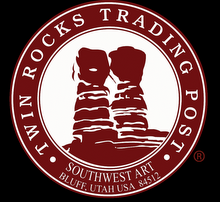The other day a friend called to remind me the Moab Century bicycle tour is coming up in early October. Since I have not been cycling much until this year, I had not considered the possibility of riding in the event. A hundred miles in the saddle can be very hard on your . . . well, you-know. So, before I made the commitment, I spent some time considering whether my old legs were up to the challenge.
Once the decision was made to participate, I knew I had to extend my training rides to ensure successful completion of the tour, so last week I embarked on my first longer ride. I decided the 50 mile loop from Bluff north to the intersection of Highway 262, southeast to Montezuma Creek and back home was the best place to start. Early Sunday morning I strapped on my helmet and shoes and started peddling north up Cow Canyon.
It was a beautiful morning, and the weather was crisp as a soda cracker. Four or five miles after I turned east on Highway 262, I noticed an Adopt-a-Highway sign that said, "In loving memory of S.P. Jones." Old S.P. had been a regular at the trading post in the early days, and it saddened me that he was no longer a trading partner. His was a good family, even though his sons had, on one unfortunate occasion, extended the extremely generous offer of using their newly acquired revolver to embellish me with a few .22 caliber bullet holes. Fortunately their suggestion was quickly withdrawn.
As I peddled east, the purple grass waved in the gentle breeze, reminding me of my step-grandmother, Fern Simpson. Grandma Fern often told us that, as a girl, she had been given the job of delivering messages and doing small errands for Zane Grey, the author of Riders of the Purple Sage. Apparently Zane had lived in Bluff for a short period prior to writing his classic tale, and Fern was his Girl Friday for a time. The purple grasses were loaded with memories from my childhood, which flooded back as fast and furiously as the storm that had struck Southeastern Utah a week earlier.
As I reminisced about my youth, enjoying the sun on my face and bite of the cool air, I began to notice derelict windmills, standing like skeletal sentinels on the landscape. In the past, these windmills had provided water for the residents and livestock of this sparcely populated stretch of land.
Near the first silent windmill stood a group of three mares and a colt. The mares'¹ long, graceful tails gently swished away the ever present pests, but the colt could do little more than thump at the flies in an awkward, uneven rhythm. The windmill's bearings had apparently long ago rusted tight, freezing the blades in place, and ensuring the end of the stream it had previously produced. Soon I noticed another, and then another, and yet another; all had stopped gathering the wind.
Before long I was singing out loud. The song was an odd combination of Peter, Paul and Mary's Where Have All the Flowers Gone? and Bob Dylan's The Times They are A-changin' . As the cows along the roadside headed for the far side of the field, frightened by the megaphone on two wheels singing protest songs from the Sixties, it struck me that the windmills were a metaphor for just how much things had changed in this part of the country since I was a child listening to those tunes.
When we first opened the trading post, our personal windmill developed a steady stream of older, "traditional" Navajo friends and customers. The old people often came into the store to pawn their jewelry, saddles, baskets or guns. All it took for them to walk away with a small loan was their "X" on a half page form. At that time, I often thought I should take the time to photograph them. People like S.P. had real character reflected in their faces and radiating from their personalities. Often we could only communicate using the few Navajo words I knew or the few English words they had learned, but it was enough to get the job done.
The thought of taking the photographs and establishing an archive overwhelmed me and the expense seemed too much to bear, so I never got around to documenting these people I enjoyed so greatly and remember so fondly. Before I knew it S.P. and many of the older people of his generation were gone, and it was too late. The windmill had stopped turning, not for lack of lubrication, but because time had taken its toll on our old friends. On that crisp autumn day, as I peddled south, down Highway 262 towards Montezuma Creek, their memories were blowing in the wind. I began wondering where had all my old friends gone and realized that the times they had a-changed.
Sincerely,
Steve


1 comment:
Very special. Thank you. ("Crisp as a soda cracker" and "megaphne one two wheels" are nifty.)
Post a Comment